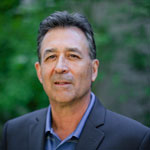Dr. Nadine Caron named founding First Nations Health Authority Chair in Cancer and Wellness at UBC
Dr. Nadine Caron — Canada’s first female First Nations general surgeon — has been appointed to a newly created UBC position dedicated to improving cancer outcomes and wellness among Indigenous peoples.
As the founding First Nations Health Authority Chair (FNHA) in Cancer and Wellness at UBC, Caron will examine the journeys and unique needs of Indigenous cancer patients, survivors and their families.

Richard Jock
“The selection of Dr. Nadine Caron as chair for this groundbreaking initiative is of the utmost interest to the First Nations of B.C. She is focused on an area of growing concern, as we are seeing poorer outcomes for Indigenous peoples with some cancers. The addition of a wellness focus will be an important contribution to treatment and care,” says Richard Jock, acting chief executive officer of the FNHA.
The position, supported by a $1.5 million contribution from the FNHA, with matching funds from UBC, aims to address the disparity in cancer health outcomes between Indigenous and non-Indigenous people in B.C. Research has shown that some cancers, including colorectal and cervical, are significantly higher among First Nations residents in B.C. and survival from almost all cancer types is lower compared to non-First Nations residents.

Dr. Dermot Kelleher
“The centuries-old knowledge of the importance of wellness, integral to Indigenous traditional learnings, is now a critical principle informing twenty-first century health care,” says Dr. Dermot Kelleher, dean of UBC’s faculty of medicine and vice president, health, at UBC. “We are delighted that Dr. Caron now holds the inaugural First Nations Health Authority Chair in Cancer and Wellness dedicated to transforming health for everyone.”
As chair, Caron, who also serves as the co-director of UBC’s Centre for Excellence in Indigenous Health (CEIH), will adopt a holistic approach while developing strategies to prevent and address cancer among Indigenous peoples, acknowledging how colonization, racism, marginalization and poverty have led to the current disparity in health outcomes.
Over the course of her five-year term, Caron will focus on collecting and reporting on Indigenous cancer experiences and outcomes, and better understanding the healthcare system’s responsiveness to Indigenous cancer care needs. She will also provide training and mentorship to faculty, students and staff, while promoting provincial and national partnerships to advance Indigenous health.
“I am honoured to serve as the founding First Nations Health Authority Chair in Cancer and Wellness at UBC,” says Caron, who lives in Prince George and provides surgical oncology care to B.C.’s rural populations. “It will take time to have the impact that our partnership aims to achieve along the entire cancer prevention and care spectrum — to better understand where we are and change these outcomes. Now we can say our responsibility starts here; the impact starts now. With all of us working together to bring Indigenous voices and perspectives forward, our tomorrow looks promising.”
The chair, representing a partnership between the UBC faculty of medicine’s school of population and public health and the FNHA, will work closely with the university’s Centre for Excellence in Indigenous Health, which was created in 2014 to improve recruitment and retention of Indigenous students into the health professions, develop curricula addressing Indigenous health concerns, and conduct further research into Indigenous health.

